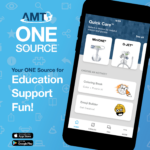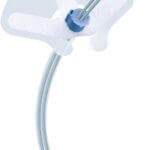Traveling with an Enterally-Fed Child: Planning for Success
Embarking on a family vacation or a trip to visit loved ones can be an exciting and enriching experience. However, for parents of enterally-fed children, the idea of traveling may come with some concerns. How will you manage your child’s feeding supplies? What should you pack to ensure a smooth journey? How can you navigate air travel and find suitable accommodations?
Rest assured, with proper planning and preparation, traveling with your tube-fed child is not only possible but also presents a wonderful opportunity for family bonding and creating cherished memories.
This article covers everything you need to plan a successful trip. We’ll dive into key topics like:
- Creating a travel checklist for your child’s feeding supplies and equipment
- Tips for packing and organizing your child’s medical necessities
- Navigating air travel with an enterally-fed child
- Finding suitable accommodations that cater to your child’s needs
- Preparing for potential challenges and emergencies during your trip
Whether heading out for a quick weekend getaway or gearing up for a more extended family vacation, this guide is your essential companion to ensuring a safe, comfortable, and memorable trip for you and your child.
Creating a Travel Checklist for Your Child’s Feeding Supplies and Equipment
One of the most essential steps in your planning process is to create a detailed checklist of all the necessary feeding supplies and equipment your child will need throughout the trip. Your travel checklist should include:
- Feeding pump and charger
- Feeding bags and tubing sets
- Syringes and extension sets
- Formula or blenderized diet supplies
- Water for flushing and hydration
- Medications and supplements
- Cleaning supplies and hand sanitizer
- Spare button or tube (if applicable)
- Barrier creams and dressings
- Medical documentation and emergency contact information
When you’re making your checklist, consider the length of your trip. Pack enough supplies to last the entire duration and include a few extra days’ worth in case of unexpected delays or emergencies. It’s always better to be prepared! It’s also a good idea to check with your child’s healthcare team or supply company to see if they have any specific recommendations or if they can provide you with a pre-made checklist tailored to your child’s needs.
Tips for Packing and Organizing Your Child’s Medical Necessities
Once your travel checklist is prepared, it’s time to start packing and organizing your child’s medical necessities. Here are some tips to help make the process smoother and more efficient:
- Use a dedicated bag or suitcase for your child’s feeding supplies and equipment. This will keep everything organized and easily accessible, making it more manageable during your trip.
- Pack your child’s supplies in clear, labeled containers or plastic bags to make it easier to find what you need. It will also be helpful when going through airport security.
- If traveling by air, pack essential supplies in your carry-on luggage to avoid running out of supplies in case your checked luggage gets lost or delayed.
- Don’t forget to bring along a small cooler or insulated bag to store formula or blenderized diet supplies that need to be kept cold during your trip.
- Be sure to pack a few extra sets of clothing for your child in case of spills or accidents during feedings. It’s always good to have backups on hand!
- Bring any necessary charging cables or power adapters for your child’s feeding pump.
If you take the time to carefully pack and organize your child’s medical necessities, you’ll be better prepared to handle any situation that may arise during your trip.
Navigating Air Travel with an Enterally-Fed Child
Air travel can be particularly challenging when traveling with an enterally-fed child, but with some planning and preparation, you can make the experience much smoother. Here are some tips to keep in mind:
- Contact the airline ahead of time to inform them of your child’s medical needs and to request any necessary accommodations, such as pre-boarding or seating with extra legroom.
- Obtain a letter from your child’s healthcare provider detailing their medical condition and the necessity of their feeding supplies and equipment.
- Allow extra time to go through security, as you may need to explain your child’s medical equipment and supplies to TSA agents.
- Pack your child’s feeding supplies and formula in your carry-on luggage to ensure you have everything you need during the flight.
- Bring a small, lightweight feeding pump that can be easily stored and used on the plane if necessary.
- Consider bringing a small blanket or pillow to help make your child more comfortable during the flight.
Finding Suitable Accommodations That Cater to Your Child’s Needs
Finding accommodations that meet your child’s specific needs is essential when planning your trip. Unlike booking any hotel, you’ll want to ensure the place can accommodate medical equipment, has refrigeration facilities for formula storage, and is comfortable for extended stays. Here are some things to consider when booking your stay:
- When choosing hotels or vacation rentals, look for options that provide kitchenettes or refrigerators. These amenities are perfect for storing formula and other supplies your child may need during your stay.
- Contact the hotel or rental property beforehand to inquire about any specific accommodations they can provide, such as a microwave for warming formula or extra bedding for your child’s comfort.
- Consider staying in a suite or a room with a separate living area, providing more space for your child’s feeding equipment and supplies.
- Research nearby medical facilities or pharmacies in case you need to refill prescriptions or obtain additional supplies during your trip.
- If a hotel or any other lodging option does not want to or is unable to accommodate your child’s specific needs, don’t be discouraged—keep searching until you find a place that truly understands and meets your family’s requirements.
Preparing for Potential Challenges and Emergencies During Your Trip
Even with thorough planning and preparation, unexpected challenges or emergencies can still crop up during your trip. Here are some tips to help you get ready for potential issues:
- Pack a copy of your child’s medical information, including their diagnosis, medication list, and healthcare provider’s contact information.
- Research local hospitals or medical facilities near your destination in case of an emergency.
- Consider investing in travel insurance covering medical emergencies, trip cancellations, or delays. It’s a smart way to safeguard your trip against unexpected setbacks and ensure you can handle any curveballs that come your way.
- Bring extra cash or credit cards in case you need to purchase additional supplies or pay for unexpected expenses.
- Have a backup plan in case of flight cancellations, delays, or other travel disruptions.
Let’s face it: preparing for potential challenges and emergencies can help you handle any situation that may arise during your trip, ensuring peace of mind and a more enjoyable experience overall.
Conclusion
As you can see, traveling with an enterally-fed child may require some extra planning and preparation, but having a safe, comfortable, and enjoyable trip is entirely possible. Creating a comprehensive travel checklist, packing and organizing your child’s medical necessities, navigating air travel with care, finding suitable accommodations, and preparing for potential challenges and emergencies can help ensure a successful and memorable travel experience for your entire family.
Remember, you’re not alone in this journey. Don’t hesitate to contact your child’s healthcare team, supply company, or other experienced parents for advice and support. With the right tools, knowledge, and mindset, you can confidently embark on new adventures and create lasting memories with your child.
Disclaimer: Anything contained in this blog is general information only and is not, nor should it be interpreted to be, medical advice. Always consult with a qualified physician and/or a health care provider for medical advice.


